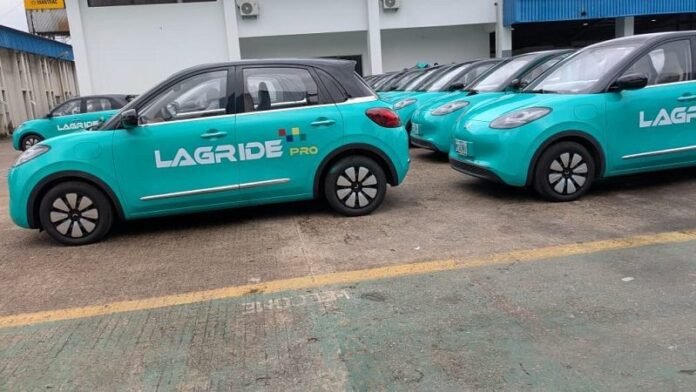LagRide, the Lagos State-backed e-hailing platform, has expanded its operations with the addition of 100 electric vehicles, marking a significant milestone in the state’s transition toward sustainable, affordable, and technology-driven urban mobility.
The announcement was made on Friday by LagRide’s Executive Director, Adeniyi Saliu, during a press conference held at the company’s headquarters in Ikeja, Lagos. The development is in line with the government’s wider transportation agenda, championed by President Bola Tinubu, to create a smarter and cleaner transit system for Africa’s largest city.
Saliu explained that the EVs were engineered for urban performance, with the capacity to travel over 333 kilometres on a single charge. Using rapid-charging infrastructure, they can regain full operational readiness in as little as 30 minutes.
“With charging stations now deployed across Lagos, LagRide is optimising routing and driver scheduling to minimise downtime, ensuring consistent service for riders,” he said.
“The cost-efficiency of EVs also means drivers enjoy higher take-home earnings, while Lagos residents benefit from quieter rides and zero-emissions transport that contributes to a cleaner, healthier environment.”
He emphasised that the initiative aligns with Lagos State’s long-term economic and environmental goals. Reduced waiting times, greater vehicle reliability, and new job creation, according to him, are among the immediate benefits of the fleet upgrade.
“We’re not just adding vehicles. We’re building an ecosystem that improves urban living—more reliable transport, cleaner air, and thousands of dignified jobs in driving, maintenance, and tech-enabled operations,” Saliu added.
A standout feature of the LagRide model, Saliu explained, is its rigorous maintenance culture. Preventive servicing, data-driven diagnostics, use of quality replacement parts, and employment of trained technicians form the foundation of its system.
“The difference Lagosians will feel is not just in the new vehicles, but in the discipline and structure that keep them running smoothly every day,” he noted. This approach, he said, ensures fleet longevity, reduces breakdowns, and enhances service reliability for riders across the city.
LagRide’s Public Relations and Communications Lead, Ifeanyi Abraham, also spoke at the event. He linked the platform’s ambitions to global cities like Dubai, where government-backed e-taxis are widely recognised for safety, affordability, and efficiency.
“Lagos is moving boldly in that same direction,” Abraham said. “We are using technology to serve people, training to professionalise our drivers, and vehicles that align with our environmental values.”
![]()










